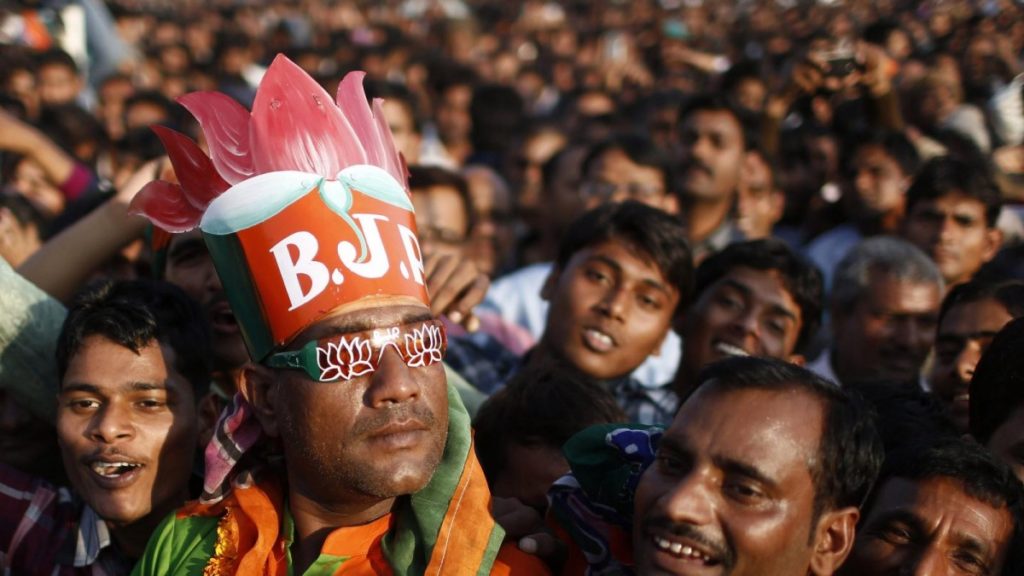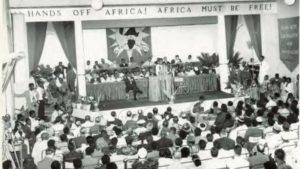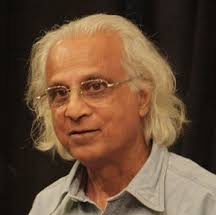Harbans Mukhia
Democracy evolved as an integral part of the world’s project of “modernity”, even as some of its early forms had been practiced in different civilisations of the ancient world. The “modern” democracy evolved as part of a package of the individual’s rights in opposition to the absolute, divine right of the medieval monarch legitimised by theology. A new economic regime, centred on the factory in lieu of land which released human labour from being tied to land and made it mobile, was another facet of evolving individual freedoms, which took centuries and varied enormously from region to region and time to time. But it ended up becoming a universal aspiration. This is Democracy in brief.
The most developed form of democracy thus far is the practice of regular multi-party “free and fair” elections which has come to be accepted as its sine qua non. The underlying assumption is that each person exercises her franchise by her individual will and the majority of such “wills” exercised in favour of one of competing parties gives it the right to rule over the entire population on behalf of the “majority”.
Simple. But that is also one of its major flaws. To begin with 50 percent + 1 vote is not weighty enough to give it such dominance over its rival with 50 percent – 1 vote as to give it the monopoly of state power until the next round. But even this majority of 50 percent +1 is an extreme rarity in the world around us. Most elected majorities have been brought in place through most of the history of franchise in the “democratic” world by a small or large minority of those who actually cast their vote. For instance, the BJP’s own majority in the 2014 elections was the making of 31 percent of the votes cast, which makes it about 20 or 22 percent of the total electorate or about 14 percent of the populace; 69 percent or an overwhelming majority did not favour it. In 2019 again, a bigger majority for the BJP has been elected by under 38 percent; 62 percent did not elect it. But this has been true throughout the past 67 years of the elections since Independence. The Congress under Rajiv Gandhi touched the highest ever score of MPs in 1984, yet without 50 percent +1 vote. Indeed, perhaps barring the first two or three elections in South Africa where universal franchise was still very new and the African National Congress won power by a majority of votes (which ultimately gave them a Jacob Zuma!), no “free and fair” elections have ever led to governments with a majority of popular vote anywhere. In the universal role model of democracy, the USA, Donald Trump has been elected President by 2.5 million fewer votes than his main competitor, Hillary Clinton. The French Constitution requires the President to be elected by 50 percent +1 vote, but the rule is not binding on the rest of the government. Indeed, the rule is not binding on any of the elected representatives, members of Parliament or any other body anywhere where such democracy is practiced. How does this then square with Democracy’s claim to be the rule of the majority, much less the rule of the “people”? And “free and fair” elections come at the end of enormous manipulations and incessant falsehoods of every sort which distort genuinely free and fair electoral choices.
Another problem: “Modernity” creates its self-image by announcing a definitive break from its medieval past which it equates with religion, religiosity and superstition, collectively characterised by it as the Dark Age. The basic claim of medieval Christian or Islamic theology was the monopoly of the single Truth; written in it was universal validity and its inevitable ultimate universal triumph over all “falsehoods”. Much as the rationality of “modernity” denounces the superstitions of the Dark Age, it has unreservedly imbibed the assumption of the single Truth of democracy from theology and therefore the inevitability of its ultimate universal triumph. In the process of achieving it by the use of persuasion or force, it reinforces the theological logic in a new garb. Theology too was not averse to using immense amount of violence, besides persuasion, to conquer the world.
If Democracy asserts the equality of human beings on the principle of individual freedoms, its practice through the single medium of elections eliminates all other anterior egalitarian assertions through history whether in religious or non-religious forms. Paradoxically, if theology had legitimised divine right of rulers, the underlying principle of monotheism, forcefully articulated in human history several times through Christianity, Islam and Sikhism, is the notion of social equality, even if its descent into practice did not coincide with the theory. Marxian socialism too asserted the same principle, though it largely failed in practice. But the aspiration for social equality has kept erupting repeatedly in different civilisations and different times, its failures notwithstanding. By substituting elections as the single expression of the assertion of equality, Democracy has put an end to the great diversity of humanity’s endeavours to realise its dream.
Yet, what is the alternative to it? Well, that is truly hard to visualise. Ironically, if Democracy had challenged the unbridled power and authority of one ruler and created a structure for its percolation down to the last voter, the working of the structure has practically reinvested all power and authority in one individual at the head of government. Elections are mostly contested around individuals, the very anti-thesis of democracy. Clearly, evolving structures ensuring decentralisation of power is the fundamental premise of a genuine departure from autocracy, whether medieval or modern. But then evolution is a long historical process and even our present day democracy took over three or four centuries to arrive at its present state. Perhaps before the present century comes to a close, humanity might devise some new modes to overcome its present flaws.
(The author taught history at Jawaharlal Nehru University, Delhi.)




